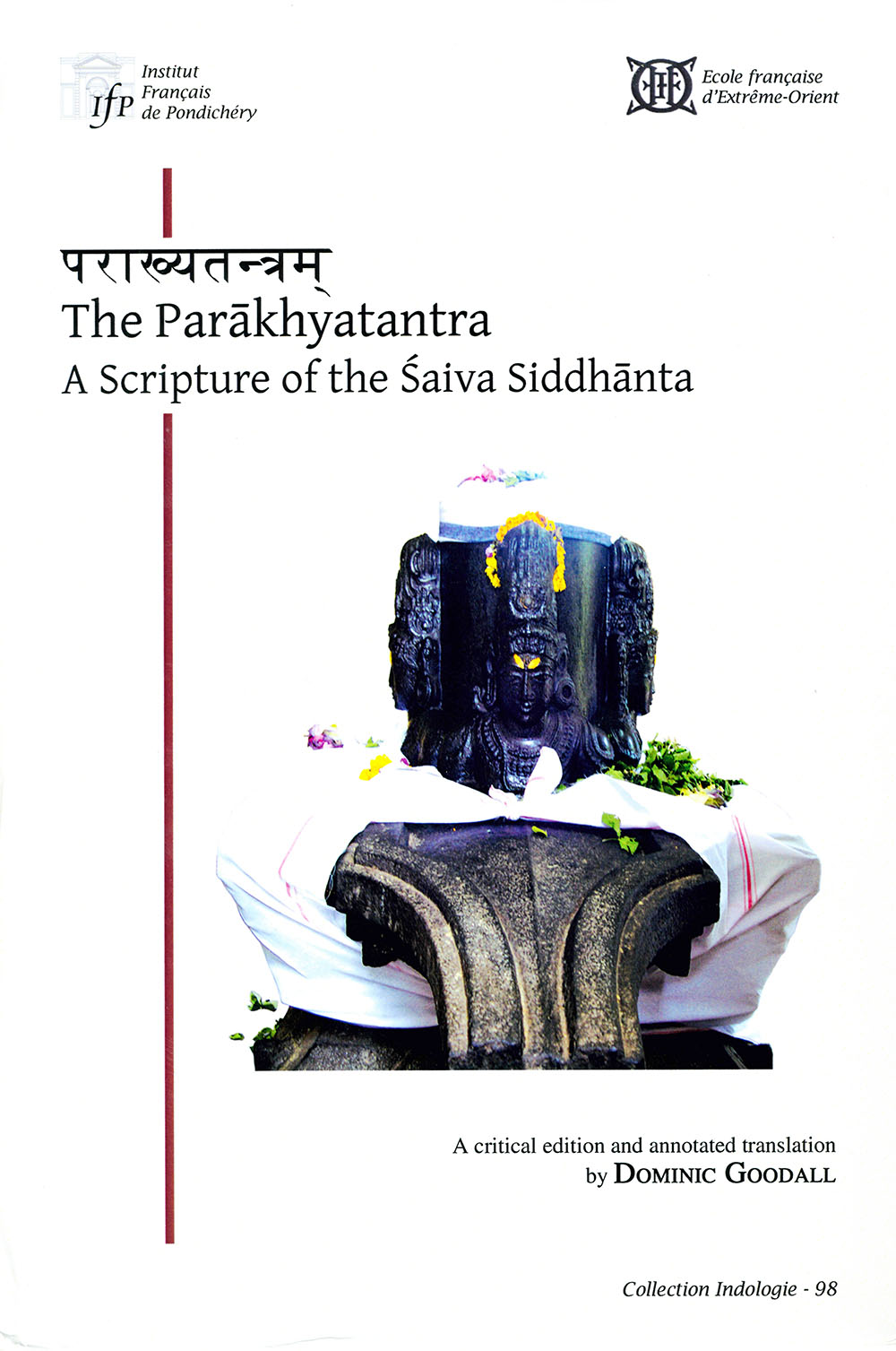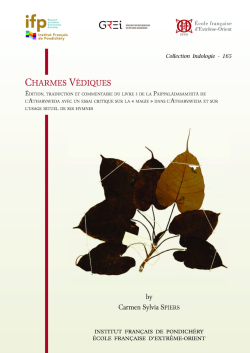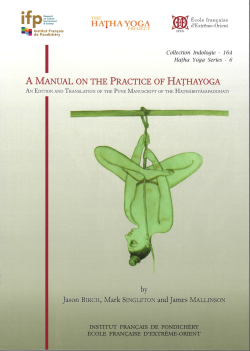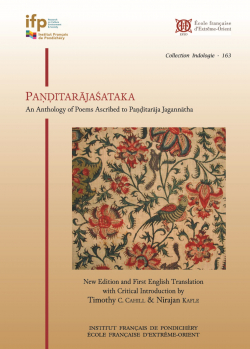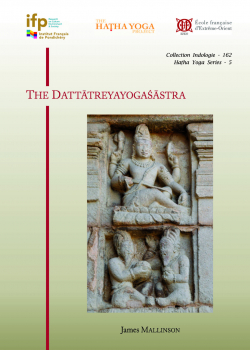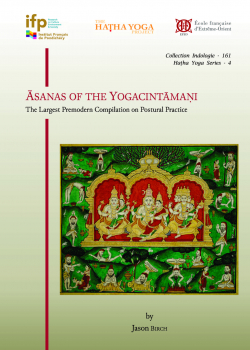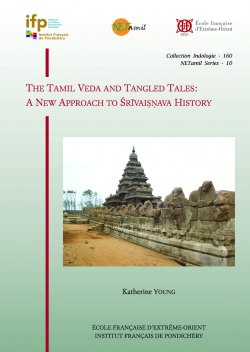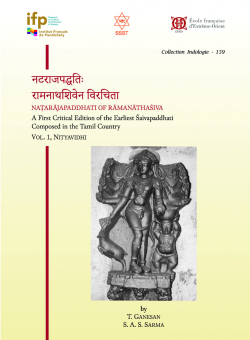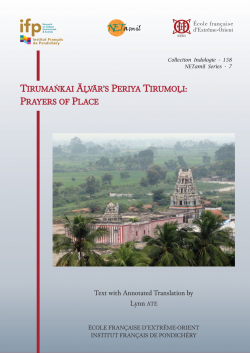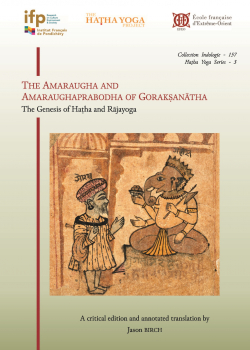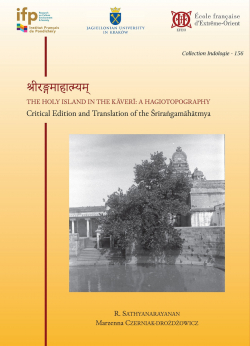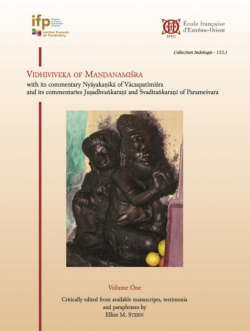Le catalogue des Éditions de l'EFEO, riche d'environ 900 titres, propose des publications portant sur l'Asie, depuis l'Inde jusqu'au Japon, et couvrant un large spectre disciplinaire en sciences humaines et sociales (archéologie, histoire, anthropologie, littératures, philologie, etc.).
Ces publications, si elles s'adressent d'abord à la communauté scientifique, intéressent également un public attiré par les civilisations et sociétés d'Asie.
The Parākhyatantra
A Scripture of the Śaiva Siddhānta
Collection : Collection Indologie
Numéro de collection: 98
Éditeur: Goodall (Dominic)
Édition: EFEO, Institut français de Pondichéry (IFP)
Année de parution: 2004
Statut : Épuisé
36,00 €
ISBN : 2-85539-642-5
ISBN-13 : 9782855396422
ISSN : 0073-8352
Largeur : 17 cm
Hauteur : 21 cm
Poids : 1,5 kg
Nombre de pages : 670
Distributeur : EFEO Pondichéry Contact : shanti@efeo-pondicherry.org, distributeur online : scholarswithoutborders@gmail.com, distributeur Chennai : jibh.rkc@gmail.com
Géographie : Inde
Langue : Anglais
Lieu : Pondichéry
Support : Papier
Description :
cxxvi + 669 p.
Résumé
This volume furnishes one more previously unpublished document of the pre-tenth-century thought-world of the Śaiva Siddhānta, a religion that was spread across and beyond the Indian subcontinent. The Parākhyatantra dates from the period before the appearance of the most significant body of theological exegesis in the history of the school, namely the writings of the tenth-century Kashmirian lineage of Bhatta Ramakantha II. Only those chapters that deal with doctrine and yoga survive. Those on ritual and other aspects of religious practice have not been transmitted in the unique codex - a beautiful palm-leaf manuscript in minute Nandinagari script. Quotations from the text have been located in later literature, and a fully positive apparatus reports the readings of all sources. A complete English translation - the first to appear of an early Siddhantatantra - accompanies the Sanskrit text. The annotation draws on parallels with other Saiddhantika writings, both published and unpublished.
Notes
Vous pouvez également commander ce titre auprès de notre centre de Pondicherry via l'adresse suivante :
library@efeo-pondicherry.org
Ou bien, auprès de l'Institut français de Pondicherry via l'adresse suivante :
library@ifpindia.org
Les commandes à destination de l'Inde doivent être placée auprès de notre centre de Pondicherry ou de l'Institut français de Pondicherry.
À propos de l'éditeur
Goodall (Dominic)
Membre de l’EFEO depuis 2000.
Né à Londres en 1967, Dominic Goodall a étudié le grec et le latin, puis le sanskrit au Pembroke College, Oxford. Après son Bachelor of Arts (Sanskrit with Pali, 1990), il a été initié au tamoul médiéval par le professeur S. A. Srinivasan, à l'université de Hambourg (1990-1991). Il est ensuite retourné à Oxford, au Wolfson College, pour y faire un doctorat sous la direction du professeur Alexis Sanderson portant sur l'école théologique du Śaivasiddhānta dans le Cachemire du Xe siècle. Sa thèse achevée (1995), il a été allocataire de recherches à l'Institut français de Pondichéry pendant deux ans (1996-1997), après quoi il est revenu à Oxford en qualité de Wolfson College Junior Research Fellow of Indology (1998-2000). Membre de l'EFEO depuis septembre 2000, il a dirigé le centre EFEO de Pondichéry de 2002 jusqu’en 2011.
Après quatre années à Paris (2011-2015), où il animait des séminaires à l’École pratique des hautes études (Section des sciences religieuses), notamment sur le shivaïsme et sur les inscriptions du Cambodge, il est actuellement affecté de nouveau à Pondichéry.
Parmi ses publications, plusieurs présentent des éditions et traductions d'ouvrages de poésie en sanskrit et de tantras et commentaires théologiques jusqu'ici inédits.
Il co-dirige, avec Mme Marion Rastelli de l’Académie Autrichienne des Sciences, le dictionnaire viennois de la terminologie tantrique hindoue, le Tāntrikābhidhānakośa, et il contribue à l'Encyclopaedia of Manuscript Cultures in Asia and Africa (EMCAA), qui se prépare à Hambourg.
En mai 2016, il a été élu membre correspondent étranger de l'Académie des Inscriptions et Belles-Lettres.
Livres similaires
Collection Indologie
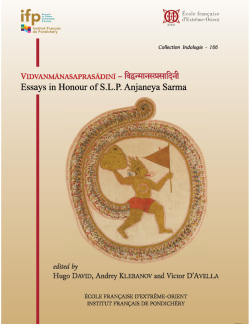
Vidvanmānasaprasādinī
S.A.S. SARMA, Dominic GOODALL, Harunaga ISAACSON, Suganya ANANDAKICHENIN, Hugo DAVID, Kei KATAOKA, Victor D’AVELLA, Giovanni CIOTTI, Andrey KLEBANOV, Émilie AUSSANT, Maria Piera CANDOTTI, Tiziana PONTILLO, Sibylle KOCH, Vincenzo VERGIANI, Timothy C. CAHILL, Somedeva VASUDEVA, Luther OBROCK, M. VINOTH, Maṇi DRĀVIḌA, Akane SAITO, Alex WATSON, Daniele CUNEO, Yūto KAWAMURA
60,00 €
2026
• Se renseigner auprès de l'éditeur
